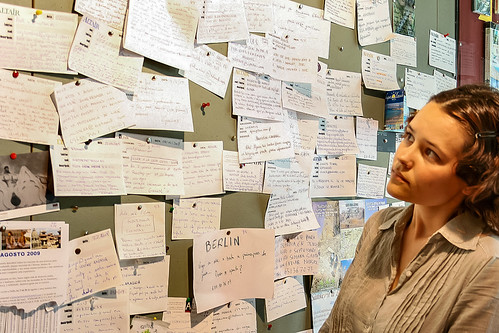The Cognitive Cost of Carbon Copy Email
Author: Wesley Fryer
Go to Source
If you haven’t noticed, we have a major email overload problem in our lives and society. There are many reasons for email overload, and there is not a single solution, but one way we can address some of the underlying issues is to reflect on what I’ll term “the cognitive cost of carbon copy email.”
Carbon Copy, or CC email, are messages we send to recipients in addition to the primary folks included in the TO line of an email. One of the important and basic email protocol lessons all teachers should learn is how to BCC (blind carbon copy) both parents and students when sending email messages. By using the BCC field, others can receive your email but NOT view the email addresses of other recipients. Generally it’s a best practice to put your OWN email address in the TO line of a mass email, and then paste the recipient email addresses in the BCC line. Failing to BCC recipients can lead to an unwanted and potentially hazardous series of REPLY ALL messages. The BCC field is our friend, and we are wise to use it regularly, especially for mass emails sent to parents and other groups.
CC or carbon copy email messages, however, can also create problems. I’m not sure we take enough time to both reflect on and discuss the COGNITIVE COST of CC emails. By “cognitive cost,” I mean the time and brain processing energy which is used and required when someone receives a CC message. As a school technology director, it costs me nothing to send a member of my staff a CC message. That person, however, has “just one more” message in their InBox to process, and my CC send decision takes a chunk of time out of their day to view and process the message. That time could be a few seconds, a few minutes, or longer. The point is, I as the sender have not had to spend any more time or energy to send the CC message. My staff member, however, bears the “cognitive cost.”
Of course there are good reasons to send CC email messages. We want to keep others in the loop. Sometimes we’re documenting something and “covering” ourselves by looping in a superior or other individual who needs to be informed. Quite often in my case, however, I think I’ve been guilty of CCing more people than I need to… and the cost-free nature of CC email (from the perspective of the SENDER) has not deterred me from this habit.
As a side note, we have all likely experienced a co-worker who unnecessarily uses the CC field in an email in an effort to bully or virtually bludgeon someone. I’ve had these happen a few times as a technology director. Rather than just email, call or talk to me about an issue, I’ve had teachers email me as well as their principal and other school administrators. Unfortunately, these kinds of messages rarely produce a constructive effect. Another important email lesson for everyone is to address contentious issues offline, either with a face-to-face conversation or a phone call. CCing the chain of command, especially when the sender is upset or otherwise emotional, is rarely constructive in my experience.
I’m also reminded of current debates over climate change and debates about a carbon tax. I’m not going to focus on the opinions in this debate in this post, but I do want to highlight a key term for climate change discussions: Externalities. The English WikiPedia explains:
In economics, an externality is the cost or benefit that affects a party who did not choose to incur that cost or benefit.
Externality. (2019). In Wikipedia. Retrieved from https://en.wikipedia.org/w/index.php?title=Externality&oldid=900768871
We should all recognize that carbon copy email includes externalities for recipients but not senders. We place a burden of expected time and attention on others when we CC them. Recognizing this, perhaps we should all ask ourselves a few questions before we blithely add one or more email addresses to the CC line of a message:
- Is it really important that all the people I’m CCing read or even receive this message?
- Why am I CCing this person?
- How do I determine that the “threshold of importance” has been crossed when CCing someone?
I’m convinced we should not only be talking more about email overload in our schools and other organizations, we should also be taking proactive steps to address it and reduce its harmful effects. Information overload is REAL for almost everyone who is a knowledge worker today, and that includes all teachers, administrators and school support staff. Email is out of control, and while CC messages only represent a part of those unread messages, they do represent a fraction we can potentially address and work to reduce together.
If you enjoyed this post and found it useful, consider subscribing to Wes’ free, weekly newsletter. Generally Wes shares a new edition on Monday mornings, and it includes a TIP, a TOOL, a TEXT (article to read) and a TUTORIAL video. You can also check out past editions of Wes’ newsletter online free!
Did you know Wes has published several eBooks and “eBook singles?” 1 of them is available free! Check them out! Also visit Wes’ subscription-based tutorial VIDEO library supporting technology integrating teachers worldwide!
MORE WAYS TO LEARN WITH WES: Do you use a smartphone or tablet? Subscribe to Wes’ free magazine “iReading” on Flipboard! Follow Dr. Wesley Fryer on Twitter (@wfryer), Facebook and Google+. Also “like” Wes’ Facebook page for “Speed of Creativity Learning“. Don’t miss Wesley’s latest technology integration project, “Show With Media: What Do You Want to CREATE Today?“




